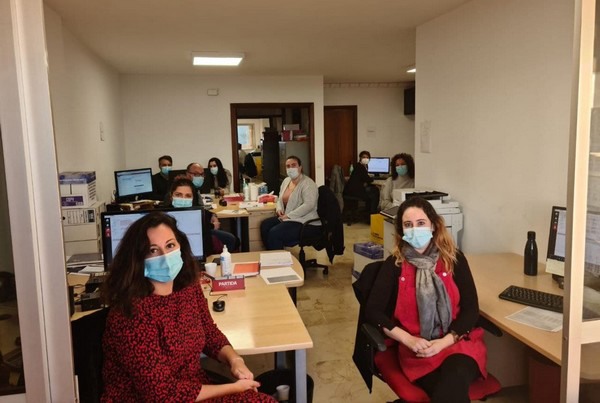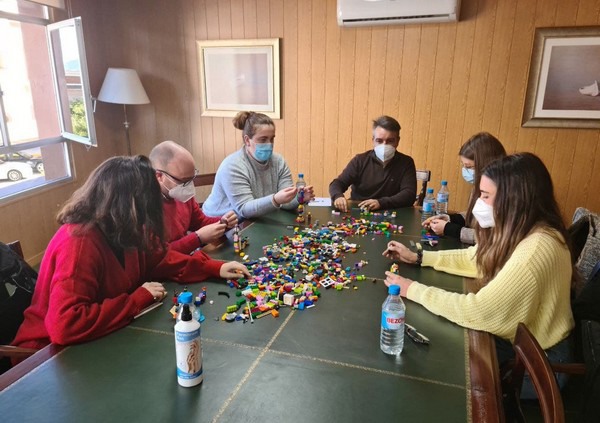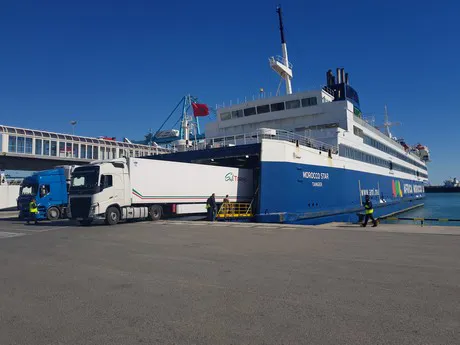The entry into force of the Brexit process in 2021 has caused delays in the entry of European fruits and vegetables to the United Kingdom, mainly due to changes in the documentation required. Álvaro Partida, Head of the Commercial Area of Partida Logistics, a Spanish company specialized in customs procedures and logistical support for imports, exports and the transit of goods by sea and road, tells us about the experience after the first 3 weeks of Brexit. Also what is yet to come with the entry into force of the phytosanitary certificate.
"These have been very challenging days, working long hours hand in hand with exporters and carriers. As expected, the situation is difficult for the fruit and vegetable and logistics sector. We've had to deal with many hurdles at the same time lately, including lack of knowledge, lack of customs documents, the snowstorm, the pandemic... Everything has gone quite well, given the circumstances. There have been delays in the departures from the United Kingdom and the entry into France via the Eurotunnel affecting loaded and empty trucks."

Partida Logistics team.
"Despite training a new team in the field of customs procedures for 2 months to ensure a quick service, things changed very quickly from January 2. We had an action protocol previously agreed with clients, and during these first two weeks, we have optimized procedures and perfected communications and the exchange of documentation (commercial invoices, CMRs, DUAs and MRNs)."
"From the outset, our clients were familiar with the documentation they needed to take with them to enter the UK and what procedures needed to be carried out, especially for carriers. We understand that for the UK, namely for its customs, health and phytosanitary agents and its ports, it must have been very tough. I know because we have partners there and they told me what they have been through. However, the worst is over. Now we are focused on continuing to improve internally, and on advising clients to prepare them for the upcoming physical inspections of goods and the entry into force of the phytosanitary certificate and the REX system."
Were they sufficiently prepared in Spain, the United Kingdom and France?
"Nobody was fully prepared. Leaving things for the last minute, plus the constant waves of information, have generated a lot of confusion among the organizations involved. There was talk of different requirements for the exporter / carrier, customs procedures and for customs services (Soivre and Fito), which have caused innumerable doubts and, above all, incidents to be corrected at departure, during boarding of Eurotunel / ferries, and when entering the United Kingdom," says Álvaro Partida.
 Partida team, working with the Lego Serious Play methodology
Partida team, working with the Lego Serious Play methodology
"The launch of different platforms in Europe and the United Kingdom, has also created confusion, especially when establishing who is responsible for the carrying out of these procedures. Therefore, all operators have had to add tasks and administrative burdens to their daily chores. At Partida, we have been advising them."
How is this affecting the fruit and vegetable sector in general?
"Companies have been almost forced to implement new concepts in the field of customs in their day to day operations, such as Incoterms and types of sale, which must be reflected in their invoices. They have also had to familiarize themselves with the functioning of agencies such as Soivre and Customs. They should be aware that the most relevant change is that now, Customs (Treasury) is up to date with its operations with third countries. Therefore, all procedures having to do with documentation, payments and traceability of the merchandise must be carried out strictly in order to avoid sanctions."

How could the possible changes in phytosanitary documentation have an influence?
On April 1, the phytosanitary certificate will start to be requested by the United Kingdom for the vast majority of fruit and vegetable products. "It should be recalled that the rules are always set by the country receiving the merchandise. At Partida, we are already informing exporters about the need to prepare to include the phytosanitary certificate to their exports. The action protocol with this body still needs to be defined and we'll see how and where the goods will be inspected when required."
Could Brexit improve the competitiveness of third countries with respect to Spanish products in the United Kingdom?
"To date, we have not seen an exponential increase in the flow of goods from Morocco to the United Kingdom. I think that it would be good for the UK to offer the same conditions and not make things easier for just some of its suppliers. Spain, Portugal or France, among others, are nearby and can supply a wide range of quality products. Unfair competition could affect the British much more and lead to shortages and social tension."
How long do you think it will take to reestablish normality? Could things get even worse?
"It is difficult to say. The pandemic continues to have a huge impact and is making everyone's work extremely hard. On top of that, adverse weather conditions, namely in the form of snowfall, have destroyed crops in much of Spain and paralyzed the transport of goods by road. Honestly, things have turned out quite well, given the circumstances and the fears we saw in the entire logistics chain. In any case, the customs protocols will continue to change and the introduction of the Fito certificate is an aspect that will require further study and prior preparation, both in Europe and in the United Kingdom. Each country having a different system and platform greatly complicates the procedures."
"We hope that normality will entail rewards for those exporters, carriers and operators following the rules of the game, because there's a lot of merit in that, and penalties for those who do not follow them. Similarly, the United Kingdom must adapt its customs procedures to the demand of existing and future traffic."
Álvaro Partida
PARTIDA – Logistics
T: +34 956 58 16 11
M: +34 652 09 44 32
apartida@partidalogistics.com
www.partidalogistics.com
